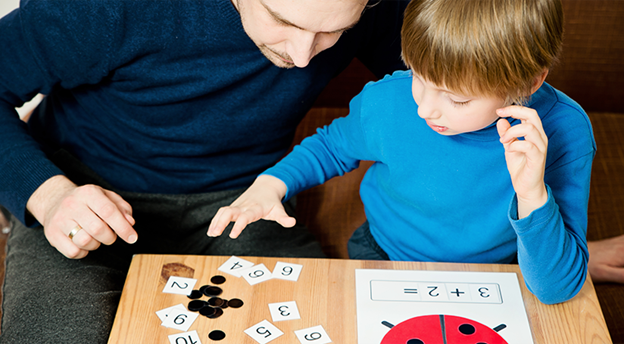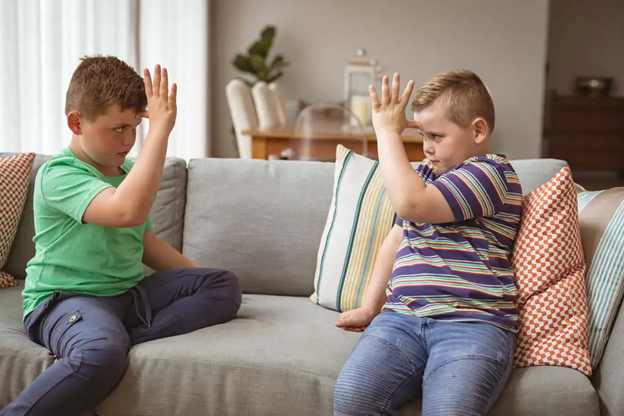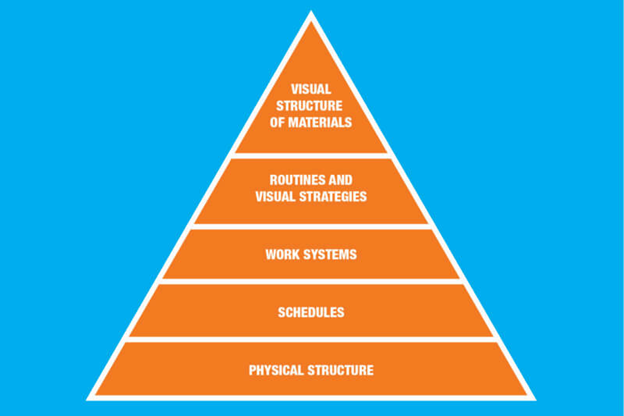For children on the autism spectrum, learning can be both a journey of potential and a series of obstacles. While many autistic students possess exceptional abilities, their educational experience is often complicated by traditional classroom structures that aren’t built to accommodate their unique needs.

To understand why learning can be so challenging for children with autism, we need to look beyond surface behaviors and focus on how they perceive, process, and respond to the world around them.
1. Differences in Processing and Communication

One of the most significant reasons learning can be difficult for children with autism is how they process information. Many autistic students experience sensory input differently — lights may seem too bright, sounds too loud, and even a slight change in environment can feel overwhelming. These heightened sensitivities can make it hard to focus, sit still, or follow classroom routines.
In addition, communication differences play a major role. Some students on the spectrum may have limited verbal language or prefer alternative ways of expressing themselves, such as using visuals, devices, or written text. Traditional classroom environments often emphasize verbal participation, which can create a barrier to engagement and expression for these learners.
2. Social Expectations in the Classroom

Classrooms often operate on unspoken social rules: when to raise a hand, how to take turns, what tone of voice to use, and how to interpret facial expressions. For children with autism, these expectations can be confusing or even invisible. They may struggle to interpret body language or sarcasm, which can lead to misunderstandings with teachers and peers.
These social disconnects don’t just affect interactions — they can disrupt learning itself. For example, a group project might feel stressful rather than collaborative. A seemingly minor classroom rule, like making eye contact while speaking, may become a point of conflict rather than growth.
3. Rigid Curricula and Pacing Conflicts

Many traditional schools operate on rigid grade-level pacing and one-size-fits-all lesson plans. That doesn’t work for every child, especially autistic learners who may demonstrate asynchronous development — excelling in one area while needing more support in another.
A child might read at a high school level but struggle with writing or basic executive functioning skills. Others might need more time to process directions or complete assignments. In a standard classroom, this mismatch between ability and pace can lead to frustration, shutdowns, or a sense of failure.
4. Behavioral Misunderstandings

Behaviors often seen in autistic children — such as stimming, avoiding eye contact, or needing breaks — are sometimes misinterpreted as defiance or disinterest. In reality, these behaviors are often coping strategies, attempts at self-regulation, or expressions of stress.
Unfortunately, when teachers aren’t trained to recognize these patterns, they may respond with discipline instead of support. This creates an unsafe or invalidating environment for the student, which further impacts their willingness to engage and learn.
5. The Emotional Load of Masking

Many children on the autism spectrum learn to “mask” — or hide — their autistic traits to fit in socially. While this may seem like a survival strategy, masking can be exhausting and lead to anxiety, depression, and burnout.
In a learning environment, masking adds an extra emotional load. Students are trying to navigate content, routines, social rules, and their own discomfort — all at once. It’s a heavy cognitive and emotional burden that impedes their ability to absorb and retain information.
6. A Need for Predictability and Structure

Autistic children often thrive in environments where routines are consistent and expectations are clear. Sudden changes in schedule, substitute teachers, noisy transitions, or chaotic lunchrooms can all disrupt a student’s ability to regulate and focus.
Many traditional schools struggle to provide the kind of structure that autistic learners rely on to feel safe. Without that foundation of predictability, learning becomes harder — not because of capability, but because of environmental stress.
7. Lack of Individualization

Perhaps the biggest challenge in education for autistic students is the lack of true individualization. Even with an IEP (Individualized Education Plan), many children are placed in systems that don’t adjust to their natural learning rhythms, interests, or strengths.
Students with autism are not all the same. Some are highly verbal; others are non-speaking. Some love routines; others need flexibility. Real learning only happens when we build environments that respond to the learner — not the other way around.
The Solution: Environments That Understand Autism
Supporting students with autism isn’t just about accommodations; it’s about creating environments designed with neurodiversity in mind from the start. That means:
- Smaller class sizes and personalized instruction.
- Clear, consistent routines.
- Sensory-friendly settings.
- Educators who understand autism and value difference.
- Flexibility in pacing and curriculum delivery.
- Recognition of each student’s communication style.
In North Carolina, one online school for kids with autism in NC is leading with that kind of understanding. By combining expert instruction, real-time teaching, and an inclusive philosophy, this program allows students to engage on their own terms while still meeting high academic standards.
Empowering Neurodiverse Learners
When autistic students are given the right tools, respect, and flexibility, their strengths shine. Some may become incredible problem-solvers, artists, engineers, or leaders. But first, they need schools that see them — not just their diagnosis, but their potential.
That’s why families seeking an online school for autism in NC — or any school for children with autism in NC — should ask: Does this school allow my child to be fully themselves while still growing?
Too many environments focus on fitting students into rigid molds. The better question is: How can we shape the learning space to fit the student?
Final Thought
Learning challenges for children with autism aren’t about ability — they’re about access. With the right approach, children on the spectrum don’t just catch up — they excel. Whether you’re searching for a school for kids with autism in NC or considering an online school for autistic kids in NC that provides true flexibility and expert support, remember this: The goal isn’t just education — it’s thriving.
Explore how Scholars Academy creates that path with personalized learning, real-time instruction, and unwavering support.
